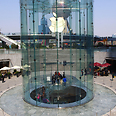Millions of asthma sufferers can breathe a bit easier thanks to research and products coming out of Israel. ISRAEL21c brings the top 10 advances in the field.

May 1 marks the annual World Asthma Day. In keeping with this year’s theme, “You Can Control Your Asthma,” ISRAEL21c presents the top 10 Israeli innovations making that goal more attainable for the approximately 250 million to 300 million people suffering from the inflammatory lung condition.
Asthma is the world’s most common chronic disease among children. In the United States alone, 13 million school days are missed each year due to asthma, and asthma accounts for about 10.1 million missed work days for adults every year. Continue Reading »















 Israeli New Shekel Exchange Rate
Israeli New Shekel Exchange Rate